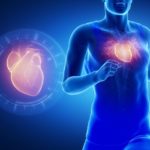Coffee is a popular beverage worldwide. There are various ways to drink coffee, from instant coffee, ground coffee to decaffeinated coffee, hot coffee, and iced coffee.
The European Journal of Cardiology, the Baker Heart and Diabetes Institute (Australia) conducted a study of over 450,000 people and found that drinking ground coffee, instant coffee, and decaffeinated coffee can extend lifespan and reduce the risk of death from cardiovascular disease, including coronary artery disease, heart failure, and ischemic stroke.

The study included 450,000 participants aged 40-69, with no history of arrhythmias or other cardiovascular diseases. They participated in the study by answering a questionnaire about their coffee intake. The summary statistics showed that 44% of the participants used instant coffee, 18% used ground coffee, and 15% used decaffeinated coffee. Only 1/5 of the participants surveyed did not have the habit of drinking coffee. Over an average of 12.5 years, nearly 28,000 participants died, approximately 43,000 participants developed cardiovascular disease, and 30,000 participants were diagnosed with arrhythmias.
Among them, those who drank two to three cups of coffee had a lower risk of developing the disease compared to those who did not have this habit. Ground coffee reduced the risk of death by 27%, decaffeinated coffee reduced the risk by 14%, and instant coffee reduced the risk by 11%. In addition, drinking 2-3 cups of ground coffee per day reduced the risk of developing cardiovascular disease by 20%, drinking instant coffee reduced the risk by 9%, and drinking decaffeinated coffee reduced the risk by 6%.

The study results showed that moderate coffee consumption is not only harmless but also beneficial for cardiovascular health. And caffeine is not the only active ingredient that can provide health benefits because some participants drank decaffeinated coffee. The benefits of coffee come from the 100 bioactive compounds found in coffee beans. They have anti-inflammatory effects, improve insulin sensitivity, and enhance metabolism.
Note for beneficial coffee consumption:
Although coffee has many benefits, experts recommend that a simple cup of coffee with a little milk is very different from a large latte with cream and sugar.
1 do:
Experts confirm that consuming coffee moderately is associated with a lower risk of cardiovascular disease, but the new way of consuming coffee is important. For coffee to be ideal, it is best to drink it without sugar, cream, or high-calorie additives. And it is advisable to limit sweet pastries when drinking coffee because they are not good for cardiovascular health and can increase the risk of obesity and diabetes.

Avoid when drinking coffee:
– Avoid drinking too much coffee: You should not consume more than 400mg of caffeine per day (equivalent to about 3 cups of coffee). You can opt for decaffeinated coffee.
– Avoid drinking coffee when it is too hot: Drinking coffee at a temperature above 65 degrees Celsius can increase the risk of esophageal cancer. Try to wait for about 5 minutes for the temperature to decrease before enjoying it.
– Avoid drinking coffee too early or too late: Drinking coffee too early on an empty stomach can increase blood sugar levels, which is not good for health. It is best to drink coffee between 9:30 am and 11:30 am when cortisol levels decrease. Also, avoid drinking coffee too late in the afternoon or evening as it can affect sleep.
How to Make Smart Choices When Selecting a Drinking Glass for Better Health
From morning cups of coffee to an afternoon soda, cups are a staple in many people’s lives. But, with the variety of cup materials available—including glass, porcelain, plastic, and paper—it’s important to understand the potential health risks associated with not choosing the correct cup for the job.



































